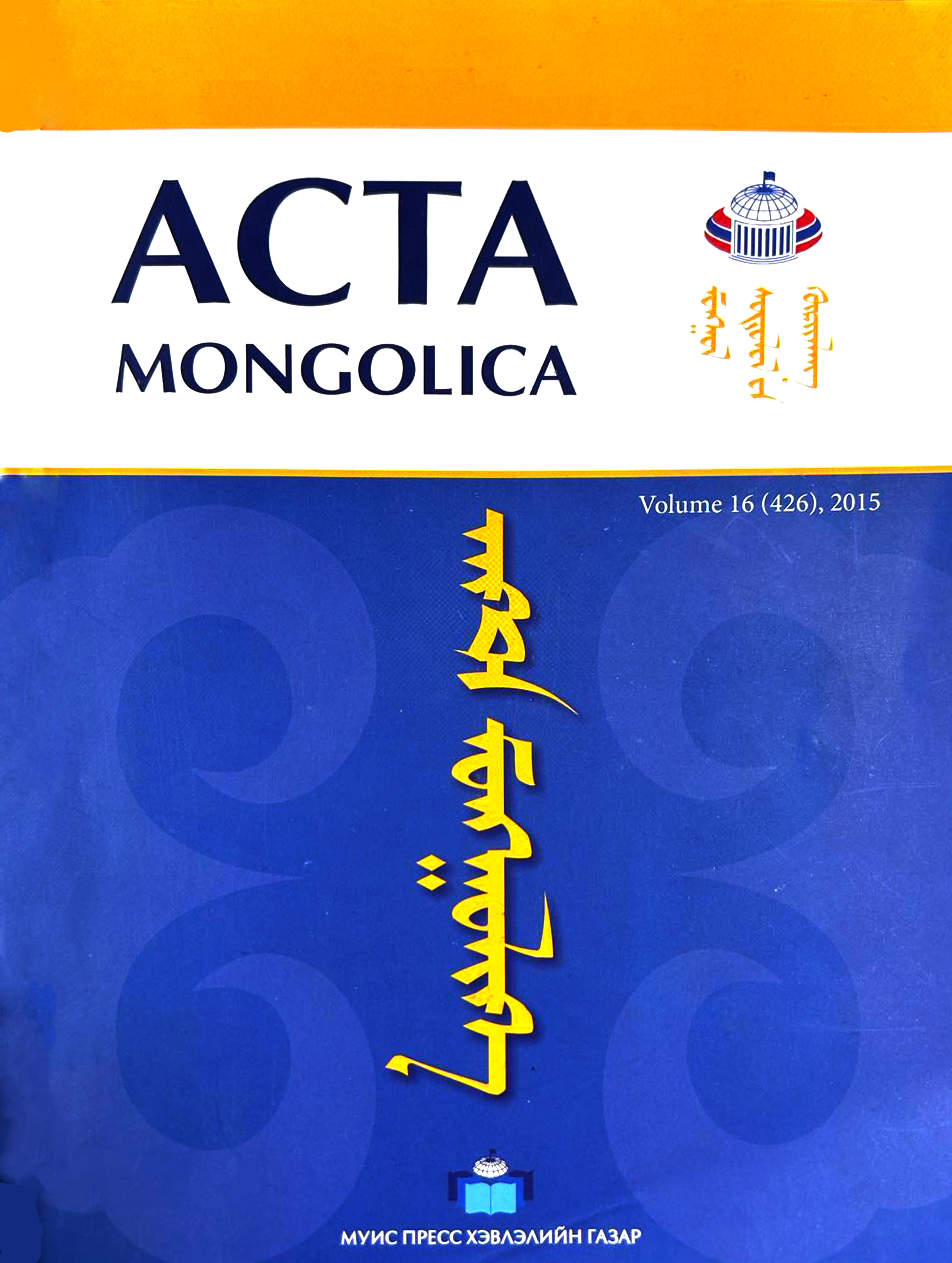COMPARATIVE STUDY OF TABOO FOOD WORDS IN KOREAN AND MONGOLIAN
Main Article Content
Abstract
Taboo words and phrases related to food etiquette in Korea and Mongolia contain the aggregated wisdom and experiences of peoples with histories of overcoming adversity in given natural environments. Unlike proverbs, taboo words and phrases are linguistically straightforward, part of what people believe and use in their everyday life. Thus, in Korea and Mongolia, two countries the comparison of which shows a contrast between settled and nomadic cultures, the expression in language of taboos related to food habits is different in accordance with customs around sex, religion, politics, and other socio cultural differences.
Article Details

This work is licensed under a Creative Commons Attribution-ShareAlike 4.0 International License.
References
Choi, U.S. and al. (1998): An Introduction of Korean Folklore, Seoul, Minsokwon.
Lee, A. N. (2005): Life and Customs of Mongolians, Seoul: Cheotnnunae.
Lim, D. H. (1999): Ancestral Memorial Service, Seoul: Taewongsa.
Park, H.Y. (1999): Mongolian Traditions and Folk Beliefs, Seoul: Bakijeong.
Namjil, T (2005): Mongol ger büliin yos, ulamjlal, Ulaanbaatar: Ulaanbaatar deed surguuli.
Nyambuu, H, and Natsagdorj, Ts(1993): Mongolčuudiin tseerlex yosnii xuraangui toil, Ulaanbaatar: ardiin tsergiin xevlel.
Yambuu, H (1991): xamgiin erxem yoson, Ulaanbaatar.
Levistrauss, C (1963): Structual Anthropology, New York, Penguin Books
Rawson, Hugh (1981): A Dictionary of Euphemisms and other Double-talk. NewYork: Crown Publishers.
Ullmann, Stephen (1967): Semantics. An Introduction to the Science of Meaning. Oxford: Blackwell.

